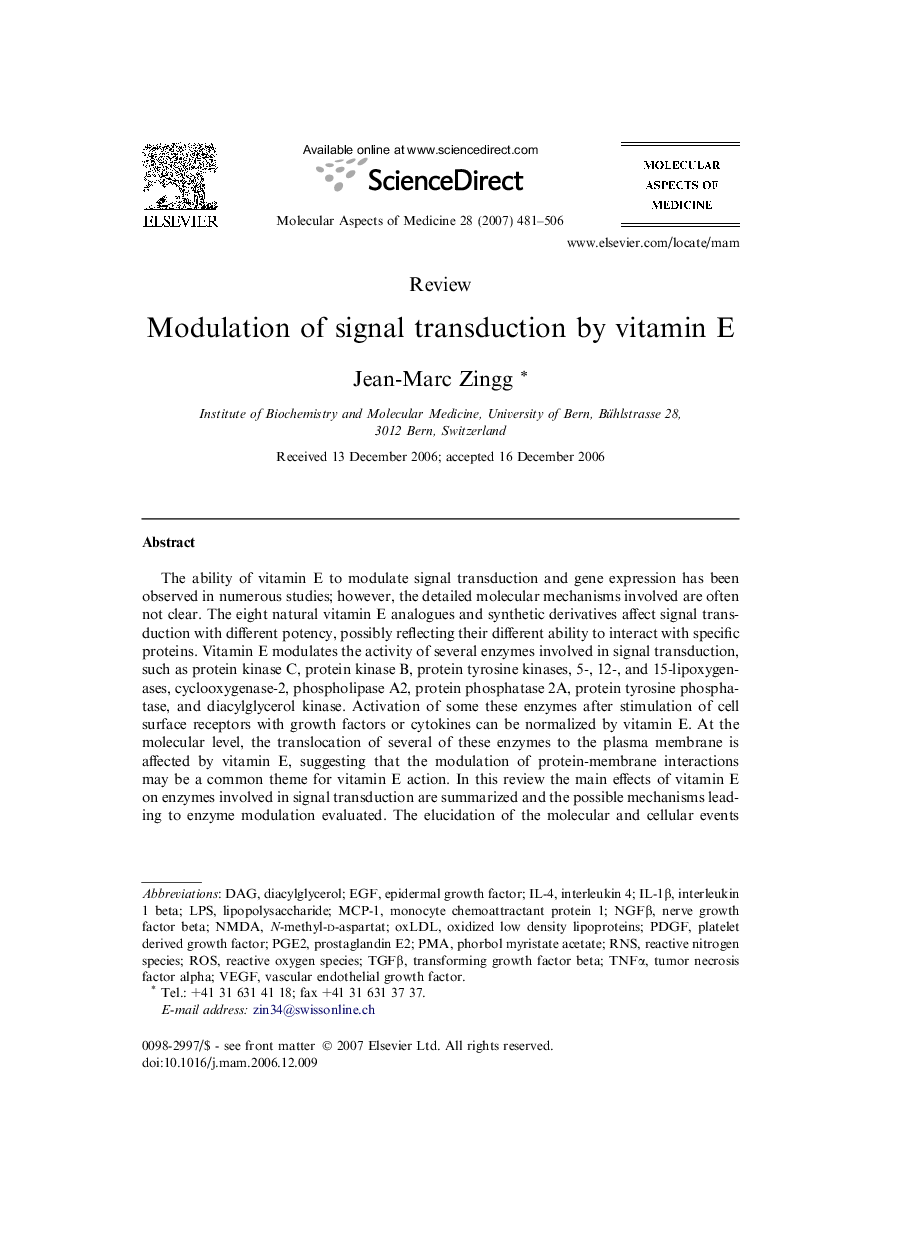| Article ID | Journal | Published Year | Pages | File Type |
|---|---|---|---|---|
| 1995866 | Molecular Aspects of Medicine | 2007 | 26 Pages |
The ability of vitamin E to modulate signal transduction and gene expression has been observed in numerous studies; however, the detailed molecular mechanisms involved are often not clear. The eight natural vitamin E analogues and synthetic derivatives affect signal transduction with different potency, possibly reflecting their different ability to interact with specific proteins. Vitamin E modulates the activity of several enzymes involved in signal transduction, such as protein kinase C, protein kinase B, protein tyrosine kinases, 5-, 12-, and 15-lipoxygenases, cyclooxygenase-2, phospholipase A2, protein phosphatase 2A, protein tyrosine phosphatase, and diacylglycerol kinase. Activation of some these enzymes after stimulation of cell surface receptors with growth factors or cytokines can be normalized by vitamin E. At the molecular level, the translocation of several of these enzymes to the plasma membrane is affected by vitamin E, suggesting that the modulation of protein-membrane interactions may be a common theme for vitamin E action. In this review the main effects of vitamin E on enzymes involved in signal transduction are summarized and the possible mechanisms leading to enzyme modulation evaluated. The elucidation of the molecular and cellular events affected by vitamin E could reveal novel strategies and molecular targets for developing similarly acting compounds.
